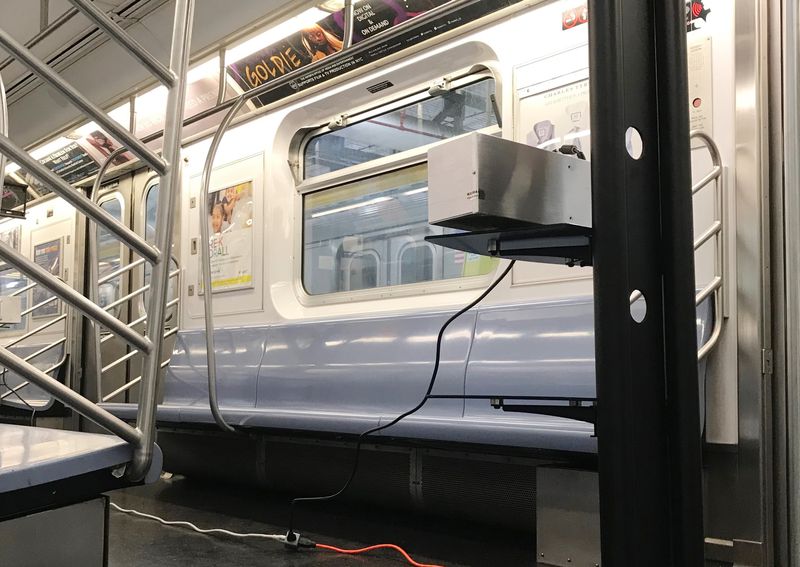Doctors looking into treatments for COVID-19
One of many UV-C lamps placed throughout two Metropolitan Transportation Authority rail yards and one bus depot starting on May 11 to help disinfect public transportation systems around New York City.
As doctors all over the world race to find a vaccine for COVID-19, some are putting their focus on finding other treatments to help slow, and hopefully stop, the spread of the coronavirus. It occurred to people that the technology and medicine possibly needed to eliminate the virus already exists, but are not typically meant for killing viruses.
One promising treatment for COVID-19 is ultraviolet C (far-UVC) light. It is commonly known that UV rays from the sun can cause damage to skin and DNA, but it can also kill bacteria. While direct sunlight is unsafe, far-UVC light can be specially manufactured to be safe for humans. This type of light is typically seen in hospitals to sterilize equipment and other surfaces. It is also helpful when disinfecting water, food and air. New research has found that it can prevent the coronavirus from weakening our immune systems and entering our bodies.
Studies on both Severe Acute Respiratory Syndrome (SARS) and Middle East Respiratory Syndrome (MERS), viruses similar to the coronavirus, have revealed that UV light can inactivate viruses, making it seem more possible that it can do the same with COVID-19. As quarantining and social distancing has proven to be slightly ineffective and the number of COVID-19 cases continues to rise, doctors realized that one thing they could do to help slow the spread of the virus is find a way to inactivate it. A study published in the Nature Journal explains that far-UVC light inactivates bacteria without damaging human skin because it absorbs so much biological matter that it’s unable to penetrate skin or eyes. In other words, since viruses are so small, it is easy for light to get inside and immobilize them. This means that far-UVC light can kill viruses that are both airborne and on surfaces without hurting people.
It’s important that people do not confuse UVC light with far-UVC light. The World Health Organization (WHO) issued a statement warning people not to use any kind of UV light to sterilize their skin. While UV light is extremely dangerous, far-UVC light has a shorter wavelength than normal UVC, making it possible to use against COVID-19 once it becomes more readily available.
Dr. David Brenner, director of the Center of Radiological Research at Columbia University, was studying ultraviolet light as a weapon against the spread of viruses before COVID-19 broke out. Brenner applied his tests to the coronavirus and found that 99% of the virus can be killed with a low dose of far-UVC light.
Another treatment for the coronavirus would obviously be a vaccine, but those can take years for doctors to perfect and are often never formulated. Various labs are also developing their own antibody tests to determine how many people already had the coronavirus, but there is still yet to be an official test approved for that.
Though far-UVC light is just now being considered a viable virus treatment, there is plenty of data that suggests it could become a standard disinfectant for public areas in the near future. Lamps using far-UVC light are currently in production and waiting for approval from the Food and Drug Administration. Soon we may see these lights in places such as train stations, airports and schools, and they will no doubt be a game-changing medical advancement.



